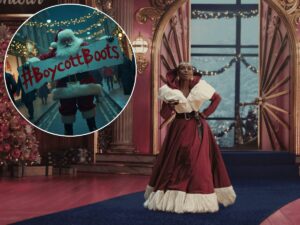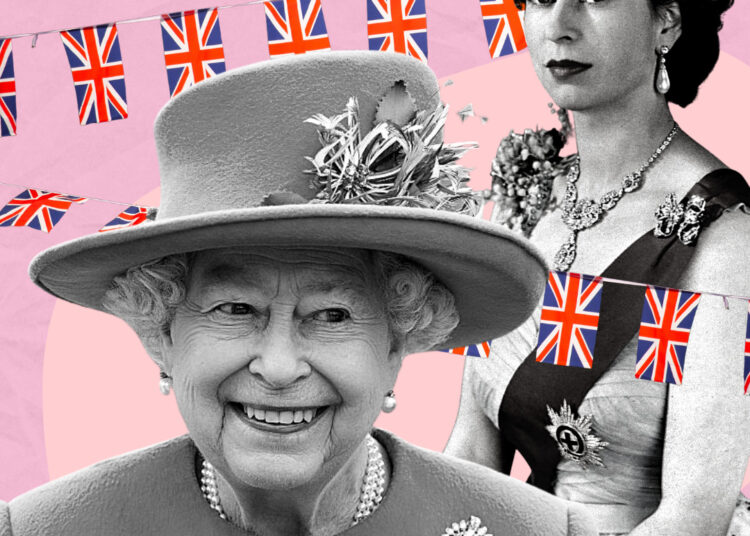I’m a 26-year-old woman, living in London and still working out my place in society. I don’t know at what age you’re supposed to know what your dream job is, but your mid-twenties seem like a good time to be working it out. I can’t imagine the pressure I would feel at just 25 to have a job for life thrust upon me and that job being the Queen of England.
Queen Elizabeth II was proclaimed Queen in 1952 and coronated 2nd June 1953. This Thursday is her platinum jubilee which celebrates 70 years on the throne and she will be the first of the British Monarchs to ever celebrate this. A lot has happened during her reign and as we look back, I wanted to delve into the question on whether we should consider the Queen aa feminist role model.
One definition of a feminist is someone who is an advocate of women’s rights based on the equality for sexes. By nature of her role, the Queen is expected to be a-political which is potentially the opposite of what a feminist represents. It means that she doesn’t have the option to speak up about her personal beliefs. Despite this, there have been several times where the Queen has proven to be a feminist herself and has demonstrated she is someone to be commended by the feminist community.

In World War II she broke down gender stereotypes when she became an auto-mechanic. Originally, the King felt it was more important for her to continue training as a princess however, Elizabeth argued differently and by March 1945 she had become the first (and only) woman in the royal family to serve in the Armed Forces. She was part of the movement of women who wanted to be involved and take on roles that were traditionally for men. She was a reminder that gender shouldn’t limit you to what you can achieve in the working world.
Since 1943 she’s been a member of the Women’s Institute, this is a voluntary organisation in the UK. It was originally founded to help revitalise rural communities and encourage women to be more involved in producing food in World War I. It now focuses on advancing the education for women, promoting sustainable development, and advancing health. The Queen makes an annual visit to the Women’s Institute and has often attended meetings and made speeches. Despite that the Queen can’t speak up on her own opinion, supporting organisations such as this gives a voice and a platform to those who should be heard. She may not be actioning feminist beliefs herself, but she gives the tools to those who can make a change.
Under the Queen’s reign she has witnessed multiple waves of feminism come to fruition and the changes this has brought in society. Inline with these advancements, the Queen has endorsed several law changes; two of them being the Succession to the Crown Act and the concurrence of the charter for the Commonwealth. In 2013 the Succession to the Crown Act was implemented which helped change the traditional rules of succession which originally said a man, of any age, was first in line before a woman to take the throne. This was changed so that the eldest child, despite gender, is always the first to accede to the throne. Also in 2013, the Queen signed a charter for the Commonwealth which declared the beliefs and values of the 53 states. The section on gender states that ‘gender equality and women’s empowerment are essential components of human development and basic rights’. The Queen signing this charter would suggest her beliefs align with this statement and it promotes the kind of equality feminists everywhere stand for. It could be argued that these little actions show the Queen to be a secret feminist, that she is standing up for women’s rights and exercising her role in a positive way.
Some argue the Queen isn’t a feminist and shouldn’t be someone we look up to as she doesn’t directly make a positive impact for women; that your actions define you more so than your beliefs. However, gatekeeping who or what is a feminist seems to be selective and contradictory to the true meaning behind feminism – inclusivity and equality. The Queen has a duty to her country which stops her from standing up for her own personal beliefs. Despite this, her actions suggest that the Queen’s beliefs aligns with that of a feminist. Whether you agree she is a feminist or not, I think it’s clear that she is a strong woman, dedicated to her job and country and should be respected and praised for her 70 years on the throne. She has constantly pushed boundaries and gender norms in her work, she’s overseen a change in laws, and she uses her voice to support organisations that deserve a platform. But at the heart of who she is, she represents strength, empowerment, and devotion and has never let gender hold her back.













